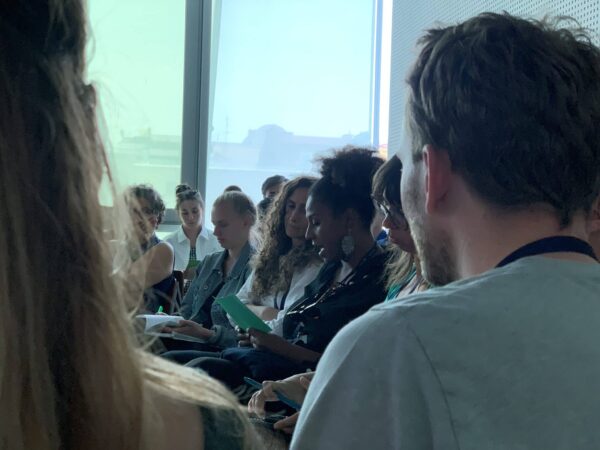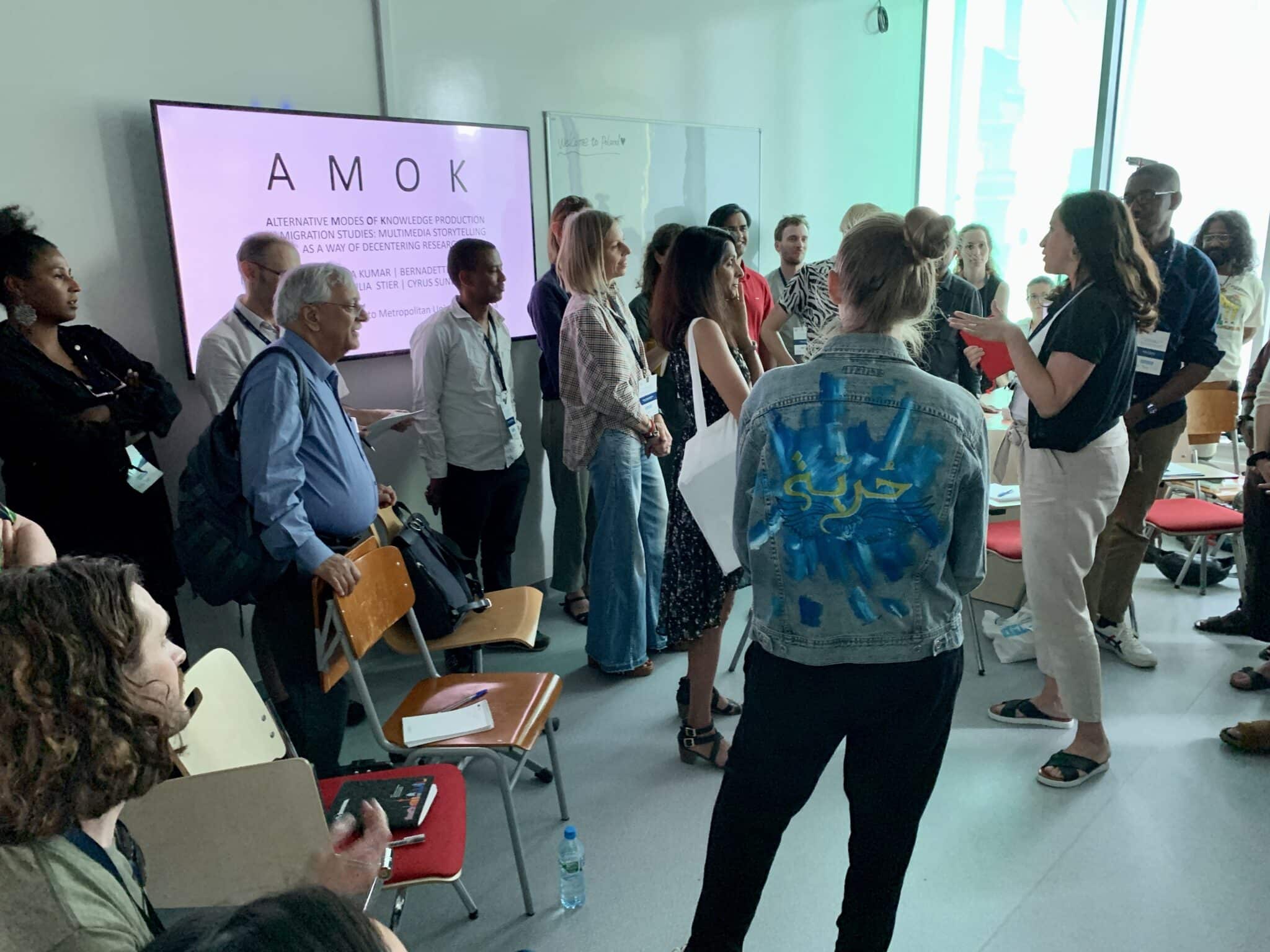In early July, our team took the 6-hour train from Berlin to Warsaw for the 20th IMISCOE annual conference. This year’s conference theme was “Migration and Inequalities: In search of answers and solutions”. On the 3rd day of the conference, together with colleagues from CERC Migration at Toronto Metropolitan University, we led an interactive workshop session on “Alternative modes of knowledge production in migration studies: Multimedia storytelling as a way of decentering research”.
Despite the many sessions being offered in parallel, we were thrilled to see our room quickly filling up with academics, civil society actors, and artists eager to explore how we can use multimedia storytelling to make research accessible, impact discourses beyond academia, and reach new target groups.
In true Migration Matters style, we kicked the session off with an ice-breaker to gauge participants’ experience in alternate forms of knowledge production beyond what we traditionally see in academia, such as papers and policy briefs. We heard from audience members about their curiosity but also reasons for hesitation in trying out storytelling or multimedia projects, for instance a lack of time while completing a PhD or being unsure of where to start and what method would be most effective. Others were quite experienced in formats such as podcasts and visual stories.
After this initial discussion, we led a series of short presentations highlighting different multimedia projects ranging from digital storytelling to literature to podcasts. In addition to lessons learned from these projects, we focused on questions of positionality, co-creation, knowledge mobilization, and the power of the arts and storytelling to shift narratives. Every presentation ended with an opening question from another presenter followed by 2-3 audience questions before moving on to the next presentation. This format encouraged discussion and audience participation throughout the session.

A workshop participant reads an excerpt from one of the storytelling projects
The projects shared by Migration Matters together with Julia Stier (WZB) and CERC Migration included:
The StOries Project: using literary writing to examine the lived experience of Canadians and generate new insights into complex migration histories and contested notions of diversity, race and identity in Canada today.
Migrant Lives in Pandemic Times: an international digital storytelling project and series of documentary shorts exploring the unique and universal challenges faced by 12 migrants across the globe during the pandemic.
i…am: a digital storytelling research project designed to explore our individual and collective sense of identity and belonging within Canada.
Borders and Belonging: an educational podcast that brings together research and evidence with stories of human experience to kindle new thinking in advocacy, policy, and research.
We aimed to come out of the session with a conceptual framework for future storytelling projects and plan to write a co-authored paper based on the results. Stay tuned!
If you’re interested in inviting the Migration Matters team to present or lead a workshop or film screening, have a look at our dialogue & events page or reach out to us directly here.
